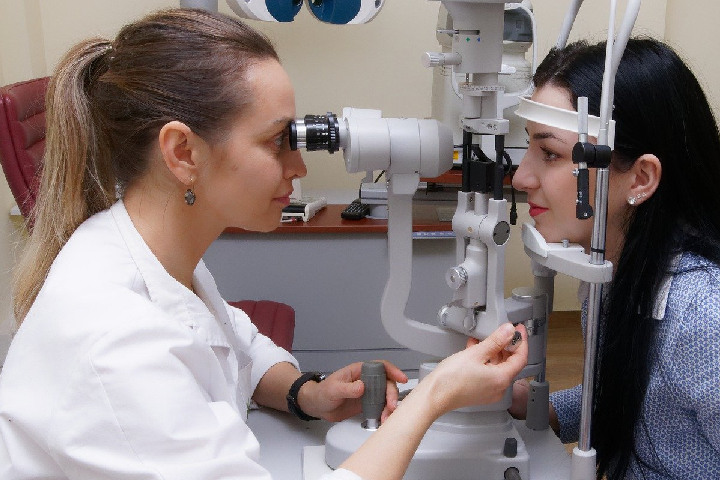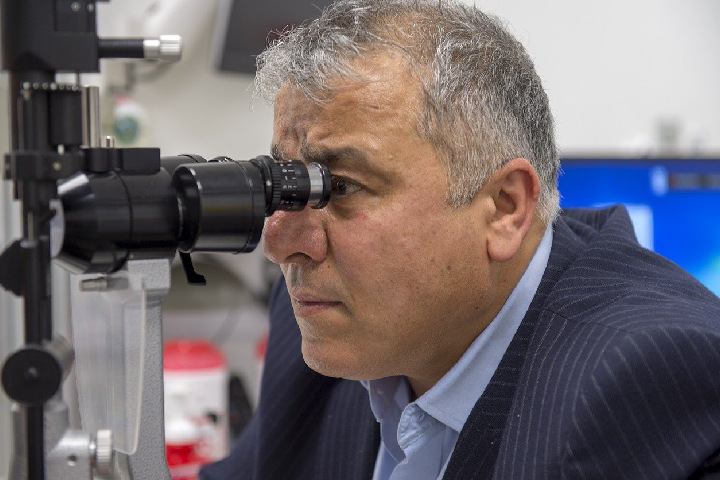Age-related Macular Degeneration: Yolanda, who suffers from this eye disease that can cause vision loss, explains that she has been able to control it thanks to the fact that she quickly went to the ophthalmologist, is very rigorous with the treatment, and maintains a positive attitude.
Age-related macular degeneration (AMD) is a chronic, degenerative eye disease. In western countries, it is the leading cause of blindness in people over 50 years of age.
But with an early diagnosis, perseverance in visits and treatments, and “a positive attitude,” it is possible to control the evolution of the disease and “lead a normal life,” as Yolanda Mejuto, 83, an AMD patient, tells us.
Table of Contents
1. Quickly Check Any Symptoms
AMD often does not give symptoms for years, Ophthalmology Service at Hospital Universitario La Paz, and the director of the Department of Ophthalmology at Hospital San Francisco de Asis, in Madrid.
For this reason, check-ups with the ophthalmologist are so important, and more so after 50 years.

In Yolanda’s case, however, the disease did present with apparent symptoms. The first time he had problems in the macula – central area of the retina – was in 2004. “I lost my central vision due to an effusion of the subretinal membrane in my left eye, “ he recalls.
Although her frontal vision has been somewhat affected. ” If I look at you from the front, I don’t see the nose, for example, but I know the rest of the face. I got my peripheral vision back. ”
Warped lines, blurred vision, or spots are common symptoms.
Perhaps this experience helped him not hesitate and quickly consult the day he realized that he saw the corrugated door frame. It was in 2015, and this time the affected eye was the right one.
“I went to Dr. again, after several tests, he told me that he had macular degeneration associated with age,” he tells us.
For this reason, Yolanda advises everyone that “as soon as they notice any vision problem, no matter how small, do not let it pass and consult a specialist.
It is essential to avoid complications. If you delay, the disease is advanced and more difficult. Trace it “.
After the diagnosis, she was initially concerned: “But I trusted the doctor who had treated me before, so I relaxed. I know it is a chronic disease that I will always have to control, but I am very positive.”
2. Stopping Vision Loss is Possible
With an early diagnosis, current treatments can prevent the disease’s progression in many cases, explains. They consist of some injections in the eye with the periodicity determined by the specialist. “Thanks to them, I have regained 87% of visual acuity, I had only 30%,” says Yolanda.
But he wants to send two messages to those who have to face a diagnosis like yours:
One piece of advice: “They have to be very constant with the check-ups and treatment. There are many people who, when they see well, decide to stop, and not only can they lose what they have gained, but they can lose their vision. ”
And some reassuring words for those who fear treatment: “Don’t be scared and go relaxed. It doesn’t take more than a few minutes, they put you under anesthesia, and you only notice a little pinch.
Then, for a day and a half, you notice stinging and some discomfort, but they can be endured well. And on the third day, you see much better.
3. Adjusting to Living With AMD
Because she started treatment right away, Yolanda says that macular degeneration does not prevent her from leading a healthy life. However, it has undoubtedly also helped that she is an optimistic, active, and very independent person.

“Where I notice it most is in reading. I have always liked reading a lot, and now if the book has a small print, I get tired, because even if I use a magnifying glass, I have to try harder.”
But he has looked for a solution: “Now I use the tablet because I can put the giant print and read books, newspapers, and magazines.”
Some tools or “tricks” make everyday life more comfortable.
She continues to attend classes – which during confinement have been online – she meets friends to play cards and goes out for a walk.
“You have to mentalize with what you have, and put a series of cares, adapt to the circumstances. But trying that the disease does not change your life. “
Although he admits that he has had to give up one of his hobbies: ” Sewing because I am not able to thread the needle .”
4. There is a Hereditary Component
In age-related macular degeneration, there is a genetic factor. People with family members who have had this disease are at risk up to three times higher.
In Yolanda’s family, that she knows, there has been no one with AMD: “My mother died at the age of 89, and she still sewed without glasses. And my father only wore them to read the newspaper. ”
If you have a family history, you have to take final checks.
However, her daughters, aged 52 and 55, are aware that if regular check-ups are essential for anyone, in their case, they are even more critical.
Yolanda says goodbye with her message of hope: “People with AMD do not get discouraged and maintain a positive spirit. After the diagnosis, you can live. Differently, it is a bump, but with the treatment, they will come back.”

